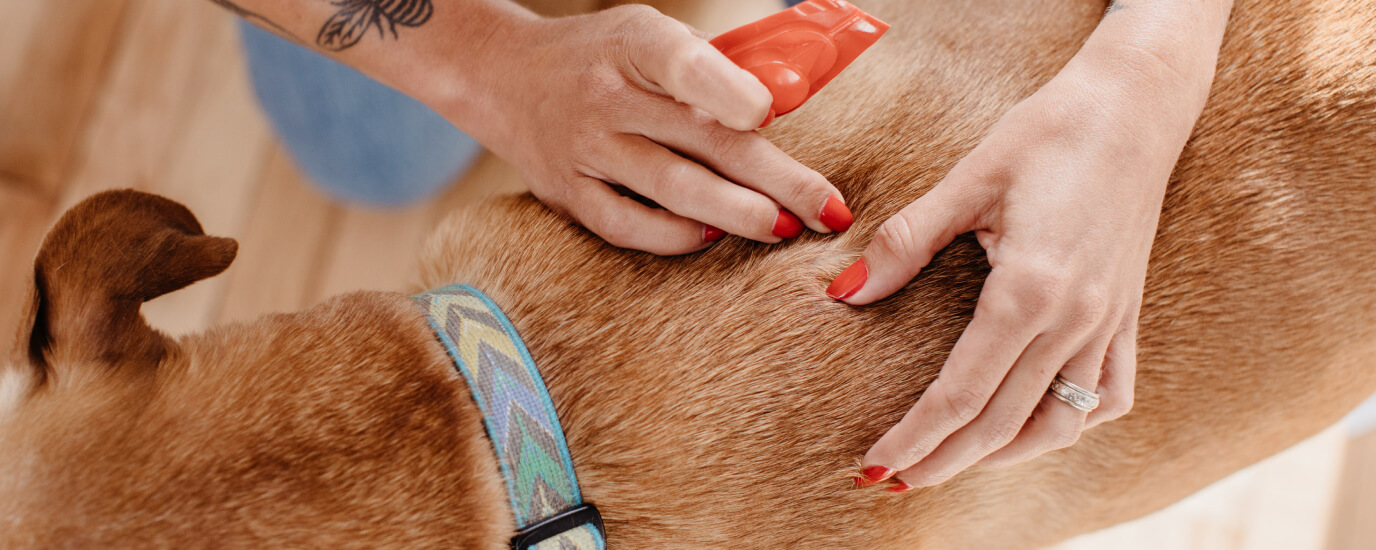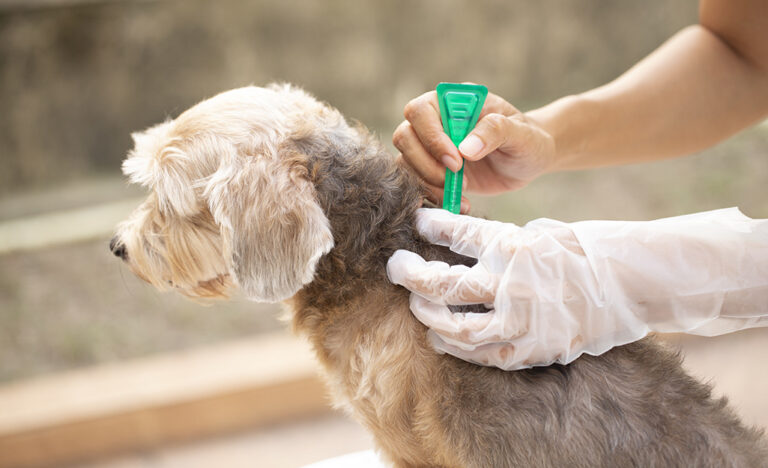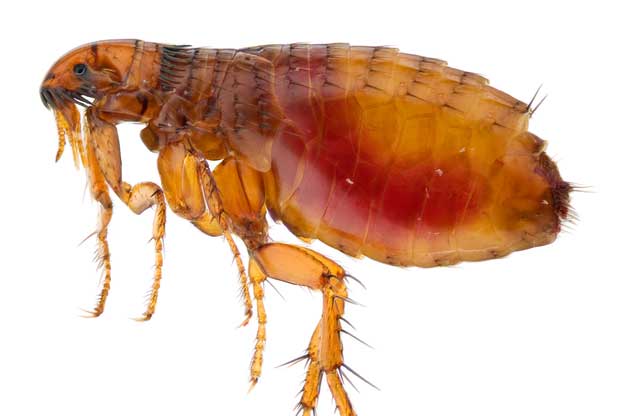Introduction to Fleas on Dogs
As a dog owner, you know how important it is to keep your furry friend healthy and happy. One common problem that many dog owners face is flea infestation. These tiny, blood-sucking pests can cause discomfort and health issues for your dog. While it is always recommended to consult with a veterinarian for proper diagnosis and treatment, there are some home remedies that you can try to help alleviate the problem.
Overview of the problem and why it is important to address it
Fleas can not only make your dog itchy and uncomfortable, but they can also lead to more serious health issues such as flea allergies, skin infections, anemia, and even the transmission of diseases. Additionally, if left untreated, fleas can infest your home and pose a threat to you and your family. That is why it is crucial to address a flea infestation promptly.
Common signs and symptoms of flea infestation in dogs
- Intense itching: Fleas cause dogs to itch, scratch, and bite themselves excessively, especially around the neck, tail, and belly.
- Visible fleas or flea dirt: Check your dog’s fur for tiny black or brown specks (flea dirt) that resemble ground pepper. You may also see live fleas hopping on your dog or in their bedding.
- Red and irritated skin: Flea bites can cause redness, inflammation, and even sores on your dog’s skin.
- Hair loss: Due to excessive scratching and biting, your dog may experience hair loss in areas affected by fleas.
Remember, it is important to consult with your veterinarian to determine the best course of action for your dog’s specific needs.

Prevention and Control of Fleas on Dogs
Maintaining a clean environment
To effectively prevent and control fleas on your beloved furry friend, maintaining a clean environment is of utmost importance. Here are a few tips to keep your home flea-free:
- Vacuum Regularly: Vacuuming your carpets, rugs, and upholstery helps remove flea eggs, larvae, and adults that may be lurking in your home. It’s crucial to vacuum thoroughly and dispose of the vacuum bag immediately afterwards.
- Wash Bedding and Linens: Regularly wash your dog’s bedding, blankets, and any other fabric materials to eliminate any fleas or eggs that may have found their way onto these items.
- Keep Outdoor Areas Tidy: Fleas thrive in outdoor areas, so regularly mow your lawn, trim bushes, and remove any debris that could provide a cozy environment for fleas to hide.
Regular grooming and bathing practices
In addition to maintaining a clean environment, regular grooming and bathing practices are key to keeping fleas at bay:
- Comb and Brush: Use a flea comb or brush to physically remove fleas and their eggs from your dog’s coat. Pay close attention to areas like the neck, tail, and underbelly.
- Use a Flea Shampoo: Use a flea shampoo specifically formulated for dogs to kill and repel fleas. Follow the instructions carefully and ensure thorough rinsing.
- Apply Topical Treatments: There are various topical flea treatments available that can be applied to your dog’s skin to effectively control and prevent fleas. Consult with your veterinarian to find the right product for your dog.
Remember, prevention is key when it comes to fleas. By maintaining a clean environment and practicing regular grooming and bathing, you can keep your furry friend happy and flea-free!

Natural Remedies for Fleas on Dogs
Essential oils and herbal remedies for flea control
If you’re a dog owner, dealing with fleas can be a frustrating and uncomfortable experience. Fortunately, there are natural remedies that can help alleviate the problem. Essential oils and herbal remedies have been proven effective in controlling fleas on dogs.
- Lavender oil: Not only does lavender oil smell wonderful, but it is also a powerful flea repellent. Dilute a few drops of lavender oil with water and apply it to your dog’s fur. This will not only help repel fleas but also soothe any irritation caused by flea bites.
- Neem oil: Neem oil is derived from the neem tree and has been used for centuries as a natural insecticide. Mix a few drops of neem oil with water and apply it to your dog’s coat. Not only will it kill fleas, but it will also help prevent them from coming back.
Homemade flea sprays and shampoos
- Apple cider vinegar spray: Mix equal parts apple cider vinegar and water in a spray bottle. Spray your dog’s fur with this mixture, paying special attention to areas where fleas are commonly found. The smell of the vinegar will repel fleas and help soothe your dog’s skin.
- Lemon bath: Cut a lemon into slices and boil them in water. Once the mixture has cooled, use it to bathe your dog. The lemon’s acidity will kill fleas, leaving your dog’s coat clean and flea-free.
Remember, while these natural remedies can be effective, it’s important to consult with your veterinarian before trying any new treatments on your dog. They can provide guidance and recommend the best course of action for your pet’s specific needs.

Flea Treatments for Dogs
Topical flea treatments for dogs
Dealing with fleas on your furry friend can be a frustrating experience, but luckily there are several effective home remedies you can try. One of the most popular options is using topical flea treatments. These products are applied directly to your dog’s skin and work by killing and repelling fleas.
The benefits of using topical flea treatments include:
- Convenience: Topical treatments are easy to apply and typically provide long-lasting protection, often lasting for up to a month.
- Effectiveness: These treatments are formulated to target fleas specifically and are designed to kill adult fleas and prevent their eggs from hatching.
Popular topical flea treatments for dogs include spot-on treatments and flea collars. Spot-on treatments are applied between your dog’s shoulder blades, while flea collars are worn around their neck.
Oral medications for flea control
Another option to consider when dealing with fleas on your dog is oral medications. These medications are taken orally by your dog and work by preventing flea reproduction and killing adult fleas.
The benefits of using oral medications include:
- Ease of use: Oral medications are often in the form of chewable tablets, making them easy to administer to your dog.
- Comprehensive protection: These medications not only kill adult fleas but also prevent flea eggs from hatching and stop the flea life cycle.
Popular oral medications for flea control include tablets and flavored chews. It’s important to consult with your veterinarian to determine the best option for your dog based on their breed, age, and overall health.
Remember, while home remedies can be effective, severe flea infestations may require professional treatment.

Protecting Your Home from Fleas
When it comes to keeping your furry friends happy and healthy, dealing with fleas is always a top priority. These pesky insects can cause discomfort and even lead to more serious health issues for your beloved pets. Thankfully, there are several home remedies that can help eliminate fleas and keep your home flea-free!
Cleaning and treating your home to eliminate fleas
Cleaning is the first line of defense against fleas. Regularly vacuuming your home, especially areas where your pets spend time, can help remove flea eggs and larvae. Washing your pet’s bedding and any other fabric they come into contact with can also help eliminate fleas.
In addition to cleaning, it’s important to treat your home with natural remedies. Essential oils like lemon, eucalyptus, and lavender can repel fleas. You can dilute these oils in water and use them as a spray on your pet’s bedding, carpets, and furniture. Baking soda can also be sprinkled on carpets and then vacuumed to kill fleas and their eggs.
Using flea control products for your home and yard
If natural remedies aren’t effective enough, there are flea control products available for your home and yard. Flea bombs or foggers can help eliminate fleas in your home, while outdoor sprays can be used to treat your yard. It’s important to follow the instructions on these products carefully to ensure the safety of your pets and family.
Remember, prevention is key when it comes to fleas. Regularly grooming your pets, using flea prevention products, and keeping your home clean can help prevent infestations. If you’re unsure about the severity of a flea problem or if your pet is experiencing discomfort, it’s always best to consult with a veterinarian for further advice and treatment.

Conclusion
Dealing with fleas on your dog can be a frustrating and unpleasant experience. However, with these home remedies, you can effectively control and eliminate fleas, providing relief for your furry friend. Remember to consult your veterinarian before trying any new treatments, especially if your dog has any pre-existing health conditions or is pregnant or nursing.
By regularly grooming your dog, using natural flea repellents, and maintaining a clean environment, you can prevent fleas from infesting your home and keep your dog happy and healthy. It’s important to remember that consistency is key, as fleas can quickly multiply and infest your surroundings.
Additional tips for maintaining a flea-free environment
Here are a few additional tips to help you maintain a flea-free environment:
- Vacuum your home regularly, paying special attention to areas where your dog spends a lot of time, such as carpets, rugs, and furniture.
- Wash your dog’s bedding, toys, and blankets in hot water to kill any fleas or eggs that may be hiding in them.
- Remove any unnecessary clutter or debris from your yard, as these can provide hiding places for fleas.
- Consider using natural flea repellent products, such as flea collars, sprays, or shampoos, to protect your dog and keep fleas at bay.
Remember, prevention is always better than trying to remove an infestation. By implementing these home remedies and following these additional tips, you can keep fleas away from your dog and create a comfortable and flea-free environment for both you and your furry friend.








